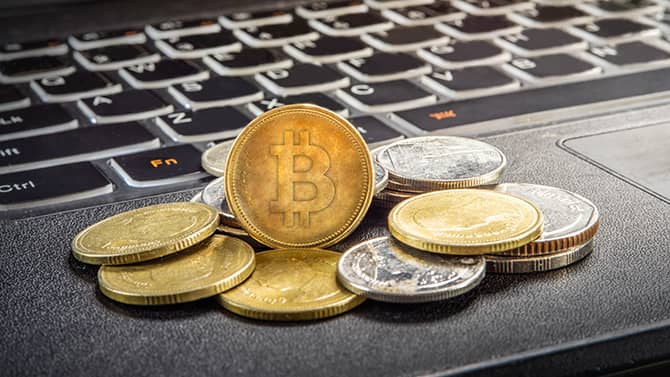Bydly Insights
Explore the latest news, trends, and insights across various topics.
Why Bitcoin is Like Digital Gold but Way More Complicated
Discover why Bitcoin is the digital gold of our time—and why its complexities could change your financial future forever!
Understanding Bitcoin's Value: How It Compares to Gold
Understanding Bitcoin's value requires a comparative analysis with traditional assets, particularly gold. Both Bitcoin and gold serve as stores of value, but they differ significantly in their properties and market dynamics. While gold has been a trusted asset for thousands of years, known for its stability and intrinsic value, Bitcoin introduces a new paradigm through its decentralized and digital nature. As more investors have begun to recognize Bitcoin as 'digital gold,' its volatility and speculative nature raise questions about its long-term sustainability as a safe haven.
One of the crucial comparisons between Bitcoin and gold is their scarcity. Gold is finite, with a limited supply that has been carefully studied and quantified. In contrast, Bitcoin's supply is capped at 21 million coins, which creates a built-in scarcity that appeals to many investors. Moreover, Bitcoin can be easily transferred across borders and efficiently stored in digital wallets, giving it advantages over physical gold. As the world becomes increasingly digitized, understanding Bitcoin's value in relation to gold may shape the future of investment strategies and financial planning.

The Complexities of Bitcoin: Why It's More Than Just Digital Gold
Bitcoin is often referred to as digital gold, but this characterization oversimplifies its multifaceted nature. The complexities of Bitcoin extend far beyond being a mere store of value. For one, its underlying technology, blockchain, enables decentralized transactions that reduce the need for intermediaries, thus reshaping how we think about finance. Moreover, Bitcoin operates on a peer-to-peer network that is maintained by a global community of miners and enthusiasts, ensuring its resilience against censorship and manipulation. These features highlight that Bitcoin is not only a hedge against inflation but also a revolutionary financial system.
Additionally, Bitcoin introduces complexities in terms of its economic implications and regulatory challenges. The currency's limited supply, capped at 21 million coins, often fuels debates about its deflationary nature, which could impact long-term economic stability. Furthermore, the rapidly evolving regulatory landscape poses risks and uncertainties for investors and users alike. Governments around the world are grappling with how to treat Bitcoin, leading to varying degrees of acceptance and legal frameworks. Thus, understanding Bitcoin requires a holistic approach, acknowledging both its potential and the challenges it brings to the financial ecosystem.
Is Bitcoin the Future of Currency or Just a Trend?
The debate over whether Bitcoin is the future of currency or merely a passing trend has gained significant traction in recent years. Advocates argue that Bitcoin's decentralized nature and limited supply make it a superior alternative to traditional fiat currencies, which are subject to inflation and government control. According to proponents, the rise of digital wallets and online transactions signifies a shift toward a cashless society, where Bitcoin could serve as a widely accepted medium of exchange. Furthermore, with growing acceptance among merchants and investment firms, the potential for Bitcoin to transition from a speculative asset to a legitimate currency seems increasingly plausible.
On the other hand, skeptics point out the inherent volatility of Bitcoin as a significant hurdle to its adoption as a stable currency. The dramatic price fluctuations can pose risks for both consumers and businesses, making it difficult to establish Bitcoin as a reliable means of transaction. In addition, regulatory challenges and concerns over security and fraud in the cryptocurrency space further complicate the narrative. As we look to the future, it remains uncertain whether Bitcoin will solidify its place as a revolutionary currency or fade into obscurity as just another trend in the ever-evolving financial landscape.